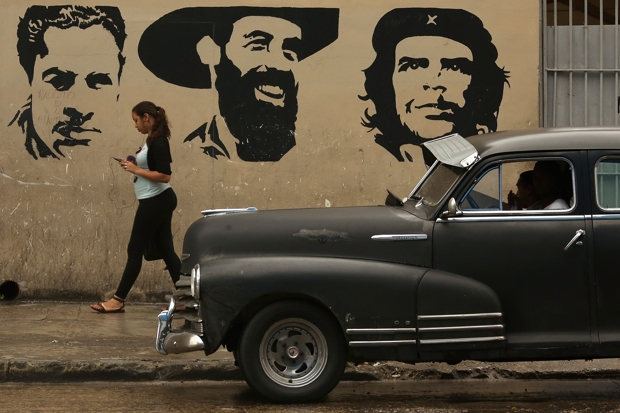Since last December, when officials from Cuba and the United States announced that the two countries, locked in a Cold War stand-off for 54 years, would seek to normalise relations, the tourist industry has been admonishing us to travel to Cuba ‘before it changes’.
Despite Cuba’s listless youth being well-versed in American culture – be it the latest fashions, pop songs or movies – on the surface Cuba remains stuck in a time warp. For tourists, the museum piece aspect of Cuba is a big part of the appeal. Thus visitors to Havana can go for a ride in a Cadillac, take in the neo-classical architecture (along with the smoke from a good cigar) and sip a mojito at Ernest Hemingway’s old drinking spot.
But hurry, the tourist brochures scream, the Yankees will soon be coming to spoil it all!
As a strategy to boost Cuba’s bourgeoning tourist industry, this ploy appears to be working. Cuba saw a 14 per cent jump in the number of tourists visiting the island from January to May this year, no doubt partly attributable to the calls from travel magazines to head to the island before Starbucks and McDonalds pop up everywhere.
I hate chain stores as much as the next concerned member of the middle classes, but one does wonder what exactly it is that affluent westerners want to preserve about communist Cuba. Over the past five years, I have spent about a year of my life in Cuba, so have seen a great deal of its ‘authentic’ side. Aside from the police repression and intellectual wasteland (there is one newspaper and state television brooks no dissent) the Cuba I have experienced is one of dirt, scarcity and rampant prostitution.
It is the last of these which is the most galling. Cuba’s command economy is unable to provide a basic standard of living for its people, so in order to survive, most Cubans must find an income source to top up their state salary. For those fortunate enough to have relatives in the United States or Europe, help comes in the form of dollar remittances. For those less fortunate, the only way to make some extra cash or eat a decent meal can often be to sell their body to a – usually much older – European or Canadian tourist.
This reality hits you as soon as you step inside a restaurant or hotel in Havana. In every direction are girls who look no more than 16 accompanied by sagging and pale tourists approaching pension age. For at least some of these western tourists who flock to Cuba each year, the failure of communist economics has been the greatest boon to their sex lives since Sir Simon Campbell accidentally stumbled across the formula for Viagra. These decrepit lotharios often look like something the Caribbean Sea has puked up; but it hardly matters, for if you are a poor Cuban, all you see is the next meal (and if you are really lucky, marriage and a ticket off the island).
Arthur Koestler once referred to pro-Soviet communists in the rich world as voyeurs, peeping through a hole in the wall at history while not having to experience it themselves. The Stalin Society is a lot smaller today (though you can still find the Cuba Solidarity stall at Labour party conference) but the mindset persists: Cubans are the unwilling participants in a communist experiment, there mainly for affluent westerners to gawk at and, when the ‘chemistry’ is right (i.e. when you’ve paid for everything) to take back to the hotel room.
Of course, the resorts in Varadero that most tourists visit are about as ‘authentically’ Cuban as a Soho restaurant’s ‘authentically Chinese’ sweet-and-sour chicken. Step outside of the official tourist route and one soon sees the real Cuba. It is here, amidst the prostitutes and the elderly people rummaging through bins in central Havana, that one starts to understand why many Cubans might like a few branches of McDonalds in their country. Cheap plastic food is, after all, a good deal better than no food at all.
So yes, it is true that American commerce and tourism might ‘ruin’ Cuba; but only the Cuba that exists for the aesthetic pleasure of certain sections of the European and American middle class. If that sounds like you, it’s probably time you stopped fetishising poverty and desperation.






Comments